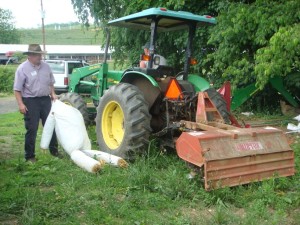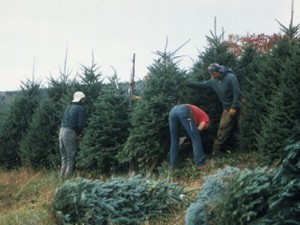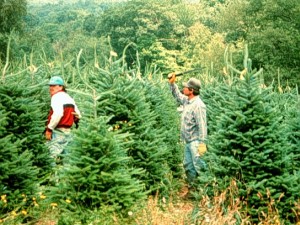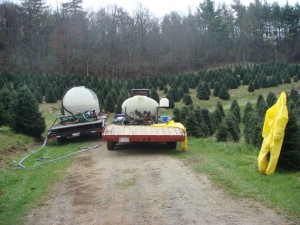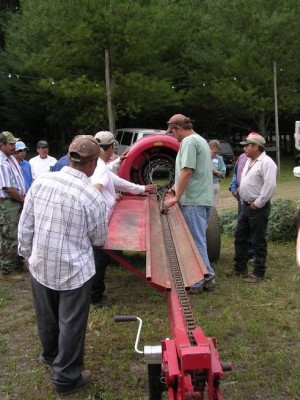Christmas Tree Farm Safety
go.ncsu.edu/readext?316991
en Español / em Português
El inglés es el idioma de control de esta página. En la medida en que haya algún conflicto entre la traducción al inglés y la traducción, el inglés prevalece.
Al hacer clic en el enlace de traducción se activa un servicio de traducción gratuito para convertir la página al español. Al igual que con cualquier traducción por Internet, la conversión no es sensible al contexto y puede que no traduzca el texto en su significado original. NC State Extension no garantiza la exactitud del texto traducido. Por favor, tenga en cuenta que algunas aplicaciones y/o servicios pueden no funcionar como se espera cuando se traducen.
Português
Inglês é o idioma de controle desta página. Na medida que haja algum conflito entre o texto original em Inglês e a tradução, o Inglês prevalece.
Ao clicar no link de tradução, um serviço gratuito de tradução será ativado para converter a página para o Português. Como em qualquer tradução pela internet, a conversão não é sensivel ao contexto e pode não ocorrer a tradução para o significado orginal. O serviço de Extensão da Carolina do Norte (NC State Extension) não garante a exatidão do texto traduzido. Por favor, observe que algumas funções ou serviços podem não funcionar como esperado após a tradução.
English
English is the controlling language of this page. To the extent there is any conflict between the English text and the translation, English controls.
Clicking on the translation link activates a free translation service to convert the page to Spanish. As with any Internet translation, the conversion is not context-sensitive and may not translate the text to its original meaning. NC State Extension does not guarantee the accuracy of the translated text. Please note that some applications and/or services may not function as expected when translated.
Collapse ▲There are many dangers for those working on a Christmas tree farm. As stated on the OSHA homepage for agricultural operations, “Agriculture is one of the most hazardous industries in the nation. Farming is one of the few industries in which the families (who often share the work and live on the premises) are also at risk for fatal and nonfatal injuries.” These dangers are compounded when most farmworkers are Latino, and even Spanish may be their second language. Their understanding of English is often limited, making them an especially vulnerable work force.
There are many laws enacted to govern the health and safety of farmworkers on Christmas tree farms and elsewhere. These are largely governed by OSHA (Agricultural Operations and EPA especially under the Worker Protection Standards (http://www.epa.gov/pesticides/health/worker.htm).
There are several web sites to help North Carolina growers comply with laws governing worker safety and health. The NC Department of Labor has a list of suggested forms for complying with OSHA regulations at http://www.nclabor.com/osha/consult/sample_programs.htm.
For compliance with EPA Worker Protection Standards, go to NC Department of Agriculture and Consumer Services WPS page at http://www.ncagr.gov/SPCAP/pesticides/wps.htm.
Growers are responsible for training themselves and their workers on safe farming practices. But finding information relevant to the specialized production of Christmas trees isn’t easy. This web site is an attempt to pull together information on several aspects of Christmas tree production and harvesting to meet that need. Each section links to another page with pertinent reference information. When available, a Spanish translation is included.
General Farm Safety
There are many dangers common to all farming operations. Information included in this section covers a wide-range of topics from managing stress, first aid, protecting yourself from UV radiation, eye and hearing injury, and the ergonomics of lifting and the stress of repetitive motion. Also included are dangers found in NC including poisonous snakes, plants, stinging insects and diseases from ticks. There is also a section on creating safe play areas on the farm.
Equipment Safety
Operating tractors and other equipment can be dangerous, especially in the mountains of western North Carolina. Many growers use older tractors which do not have PTO shields and rollover safety features. Included is information on tractor and ATV safety as well as guarding against dangers from electricity.
Shearing Safety
In this section are safety practices to use while shearing. But other dangers exist as well while shearing, including repetitive stress injuries, eye injuries, exposure to UV radiation, dehydration and heat stress, poison ivy, and stinging insects. For information on these, see general farm safety.
Pesticide Safety
This section contains information about complying with pesticide and worker protection laws. Included is information on pesticide licensing, health effects of pesticides, pesticide storage, understanding the label and sources of labels and MSDS sheets, complying with the Worker Protection Standard, PPE, laundering pesticide-contaminated clothing, heat stress, record keeping and calibration. Also included are environmental safety issues including how to protect surface and ground water, wildlife, and bees, as well as how to handle pesticide disposal and spills.
Harvest Safety
Harvesting presents another set of dangers on a Christmas tree farm. Included is information on chainsaw and baler safety. Information on hearing protection is found in the general farm safety section.



